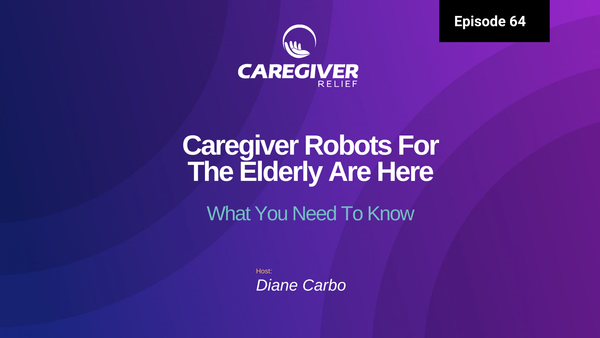Does Hospice Cover 24-hour Care at Home?

This post was written to help you better understand the coverage of hospice care and 24-hour care at home. We’ll explain what hospice care is, define the different types of coverage that are available through Medicare and private insurance plans, and outline the steps for finding care. We’ll also discuss additional types of care available, legal considerations, and resources to help you throughout the process.
Hospice care is often seen as a compassionate choice for those who are facing terminal illness, and it provides comprehensive emotional and physical care during a person’s final days. 24-hour care at home is a specialized service that is tailored to your individual needs. It can provide you with the support you need, day and night, and is often a preferred option for many people.
Knowing the difference between hospice care and 24-hour home care, as well as understanding the coverage options and eligibility requirements can help make the process of finding the right care much easier. This guide provides you with the information you need to make informed decisions about your care.
What Is Hospice Care and 24/7 Home Care?
Hospice care is specialized care that is provided for individuals with a terminal illness. It focuses on providing comfort and managing pain rather than curing the illness. Hospice care is typically provided in a hospice facility, but it can also be provided in the home for those who prefer to remain at home.
24/7 at home care, on the other hand, is different from hospice care in that it provides continuous round-the-clock care for individuals who need assistance with daily activities, such as meals, bathing, cleaning, and medication management. This type of care helps individuals to remain safe and comfortable while living at home.
It is important to note that not all 24/7 home care providers offer hospice services. Therefore, it is essential to understand the differences between the two types of care when considering whether or not 24/7 home care covers hospice services.
Medicare Hospice Benefits
For those facing a terminal illness, hospice care can provide comfort and quality of life. The federal government offers Medicare and Medicaid, two programs that provide coverage for necessary medical expenses of those with a terminal illness. This section will explain the hospice benefits available through each program and how they can be used to cover the costs of 24-hour care at home.
Medicare Coverage
Medicare is a federal health insurance program for individuals age 65 and over, and some younger people with certain disabilities. Medicare covers the cost of hospice care services in the home, as well as medications, medical equipment, and other related services. It also pays for grief counseling for up to 13 months after the death of a terminally ill patient.
In order to receive Medicare coverage for hospice services, you must meet certain eligibility criteria. To qualify for Medicare's hospice benefits, you must:
- Be certified by a doctor as having a terminal illness with a life expectancy of six months or less.
- Be enrolled in a Medicare-approved hospice program.
- Sign a statement electing hospice care instead of curative treatment for the terminal illness.
Once these requirements are met, Medicare will then pay for most of the cost of hospice services. However, there may be a few services that are not covered. These include respite care, which provides temporary relief for caregivers; experimental or investigational treatments, and some other services deemed ""non-hospice services.""
Medicaid Coverage
Medicaid is a joint federal-state program that helps pay for medical care for certain groups of low-income individuals and families. In addition to covering the costs of hospice care, it may also cover certain home health care services. Home health care is different from hospice care in that it provides supportive care to help the patient maintain their current level of health and functionality.
To qualify for Medicaid home health care benefits, you must be eligible for Medicaid and be considered ""medically needy."" This means that your income and resources must meet certain requirements. In addition, your doctor must certify that you have a need for home health care services.
The extent of Medicaid coverage for home health care varies by state, so it's important to check with your local Medicaid office to find out what's covered and whether the services you need are eligible for coverage.
Private Insurance Coverage for Hospice and At-Home Care
Hospice and home care services can be expensive but luckily, Medicare, as well as private insurance companies, often cover much of the cost. Private insurance plans vary greatly, so it is important to understand what coverage is available for hospice and home care.
Most health insurance plans cover some portion of at-home hospice care. However, it is important to review your plan's details, as coverage may differ from state to state or even within a plan. The insurance provider should be able to provide a list of covered services and clarify the extent of coverage. It is also important to note that some plans may only pay for basic hospice services, while others may also include supplemental services such as nursing care, therapies, and medical equipment.
Additionally, private insurance plans may require a co-pay for certain services or generate a percentage by which the patient must pay out-of-pocket for their care. Be sure to check with your insurance provider for exact details on coverage, co-pays, and other cost-sharing requirements. If you still have questions regarding your coverage, contact your insurance company's customer service department for more information.
Conclusion
It is important to understand the details of your private insurance plan to ensure that you are properly covered for hospice and home care services. Be sure to review your policy closely and reach out to your insurance provider if you have any questions. With the right research and preparation, you can secure the best possible coverage for your needs.
Eligibility Requirements
Getting the medical care you need at home can be a great relief, and hospice and home health care services offer an extra layer of comfort and support. However, meeting certain requirements is necessary in order to gain access to this type of care.
In general, Medicare and Medicaid provide some level of coverage for home health and hospice services. But these programs have certain eligibility requirements that must be met. Depending on your condition and individual circumstances, you may be required to meet certain criteria in order to qualify for coverage.
To begin with, you must have a doctor’s referral or prescription for home health and hospice services. These orders must also state that these services are medically necessary. The services must also be provided by a qualified provider, such as a registered nurse or physical therapist.
Medicare or Medicaid coverage may also require that you remain under a doctor’s care while using home health or hospice services. This means that you must keep up with regular check-ups and prescribed treatments. The doctor must also certify that you are homebound.
This means that, due to physical or mental illness, it is difficult for you to leave your home without help. If you are able to do so, the number of times you are able to leave must be limited.
In addition, if you are receiving home health services, you must require daily nursing care or therapy to manage an illness or injury. Hospice services, on the other hand, require a diagnosis of a life-limiting illness with a prognosis of six months or less.
Understanding the eligibility requirements for home health and hospice services can be confusing. It is important to work closely with your doctor and healthcare provider to ensure that you meet all the necessary qualifications.
Qualified Providers for At-Home Hospice Services
When considering hospice care and home care at home, it is important to understand who is eligible to provide such services. Hospice and home health care is provided by certified healthcare professionals including doctors, nurses, home health aides, social workers and religious counselors.
The primary care provider, the doctor or nurse who knows you best, may coordinate all the medical services needed. From there, the doctor may refer you to a specialist who can provide more specific treatments. The hospice team also includes home health aides who are trained to provide personal care, like bathing and dressing, and home health aides who may provide skate life tasks such as grocery shopping, light housekeeping and preparing meals.
Social workers are also important members of your hospice team, providing counseling and emotional support, along with assistance in applying for financial aid and other resources. They are available to help you and your family navigate care options and create an organized plan for your loved one.
Religious counselors are also available to provide spiritual support if desired. They are trained to listen, offer compassion and prayer, and provide appropriate counseling.
Finally, the hospice team typically includes volunteers who may provide a variety of services, such as providing companionship, helping with errands, or light housekeeping.
The Cost of Home Health Care
Home health care can be an expensive endeavor, and it’s important to understand the potential costs invovled before starting. In general, home health care is a cost-effective alternative to a nursing home or other long-term care facility, but expenses will still need to be taken into consideration.
Estimated Costs
The exact cost of home health care will depend on the individual situation and type of care needed. Generally, Medicare covers some of the cost for approved services including physical therapy, medical equipment rental, or nursing services. Some services may require copays or additional fees, such as hospice care. It is important to check with your insurance provider to understand the details of their coverage.
In addition to insurance coverage, there may also be additional out-of-pocket expenses for additional supplies or services not covered by insurance. Some common examples are medical alert systems, specially designed furniture, or in-home modifications to accommodate a disability. The total cost can add up quickly, so it is helpful to research all the potential costs prior to beginning care.
Financial Assistance
For those who cannot afford the cost of home health care, there may be financial resources available. Medicaid may be able to provide some coverage for home health care, especially for low-income households. There may also be local charities or organizations offering assistance programs for home health care. It is important to research all potential financial aid options prior to beginning home health care.
Overall, the cost of home health care is an important factor to consider before deciding to pursue care. Although home health care is often the most cost-effective option, expenses can still add up quickly if they are not properly accounted for. It is also important to remember that financial assistance may be available through Medicaid or other programs, so be sure to explore all available resources.
Finding 24-Hour Care at Home
Finding 24-hour care at home can seem like a daunting task. The good news is that you are not alone in this process. There are a wealth of services and resources available to help guide you through the process of locating and connecting with providers who offer 24-hour care at home.
The first step in finding care is to conduct research into the state regulations that apply to in-home care providers. Every state has its own set of rules and regulations that apply to individuals, organizations, and companies offering at-home care services. These regulations are designed to protect both the client and the provider.
In addition to researching each state’s regulations, it is also important to review the provider’s credentials and qualifications. Most states require providers to be licensed or certified. It is also important to determine if the provider is covered by insurance. Finally, make sure to ask about the experience the provider has working with clients who need 24-hour care.
Once you have completed your research, it is time to start looking for a provider. You may want to consider getting referrals from your health care team, family, and friends. It is also important to look into different organizations and companies that provide 24-hour care. These may include home health agencies, hospice organizations, private duty nursing companies, and other healthcare providers.
When you have narrowed down your list of potential providers, reach out to them to learn more about their services and policies. Make sure to check with each provider to see if they offer 24-hour care and inquire about any additional fees associated with the service. Also, ensure that the provider will create an individualized plan tailored to meet your specific needs.
Ultimately, understanding the importance of researching state regulations and reviewing the qualifications of providers is essential to finding quality 24-hour care at home. With the right information and resources, you can find a provider who is best suited to meet your needs and help you on your journey towards recovery.
Additional Types of Care
In addition to hospice care, there are other forms of home care that can supplement and improve the quality of life for those receiving hospice services. These services may be provided by family members and caregivers or by visiting nurses and other healthcare providers.
Home health aides and homemakers provide help with everyday tasks like cooking, cleaning, and grocery shopping. They can also provide assistance for personal care activities such as bathing, grooming, and dressing. Home health aides may also provide help with medication management and other health-related activities.
Physical, occupational, and speech therapy services can help with physical issues such as mobility and strength, medical equipment needs, and cognitive problems which can come with aging or illness. Social workers can provide additional support for individuals and their families in managing daily life, transportation, legal and financial matters, and grief counseling.
Depending on an individual's specific needs, a range of other services may be available including home-based mental health services, respite care, spiritual counseling, and massage therapy. There is no one-size-fits-all approach to home care, so it’s important to work closely with your hospice team to identify the best combination of services for your loved one.
Legal Considerations
When it comes to receiving home health and hospice care services, it is important to take a look at any potential legal ramifications beforehand. It is essential to understand that the right to have hospice care in your home is secured under federal law. No healthcare provider can deny a patient the right to receive hospice care.
However, there are also some state-specific laws that apply. For example, in some states, there may be restrictions on the type of equipment or medications that a patient can receive as part of their care. Additionally, there are other regulations related to the length of time for which hospice care can be provided at home, or the number of visits that can take place within a certain period of time.
It is important to know about any laws specific to your state before receiving care in your home. In some cases, state regulations may conflict with those of the federal government, so it is important to be aware of the specifics of your situation. Additionally, you can consult a local attorney for advice about your particular circumstances.
Additional Resources for Home Health and Hospice Care
Finding the right care for a loved one can be a complicated process. Fortunately, there are many helpful resources available to make the journey easier. Here is a list of additional resources related to home health and hospice care.
- The National Hospice and Palliative Care Organization (NHPCO): This organization provides extensive information on bereavement services and end-of-life care. Their website includes a directory of hospice providers across the United States.
- Family Caregiver Alliance: This nonprofit organization provides support and resources to caregivers and families who are caring for a loved one at home. They offer comprehensive information on home health care services and how to access them.
- Centers for Medicare & Medicaid Services: This government agency provides detailed information about home health and hospice benefits under Medicare and Medicaid, including eligibility requirements and coverage details.
- Aging with Dignity: This nonprofit organization provides practical tools and resources to help individuals navigate the end-of-life care process and make informed decisions about their care preferences.
These resources can provide helpful information to those seeking more information on home health and hospice care. Using them, individuals can find qualified care providers and become informed about their rights and options when it comes to end-of-life care.
You might also like this article:







